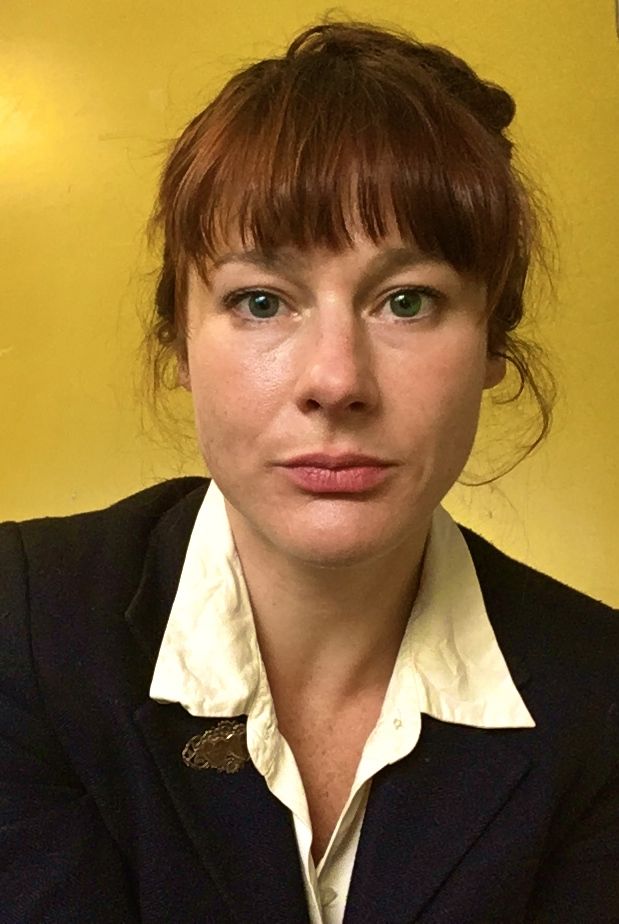Missing File #7: The Ortolan Bunting
Alison Powell
from BWR 45.1
In 1996 former French President Francois Mitterand
invited thirty guests to his last supper. One was delighted
to attend and offer condolences, admittedly a delicate
balancing act. President Mitterand sat mute at the head
of the table, blankets wound around him, eyes glorious,
blank as bicycle reflectors. In the corners were his body-
guards. At first the President seemed to be sleeping,
but with a sweeping blur of white linen— when the servants
arrived with the birdies, the chef called them — the former
President grinned, teeth shiny with spit. Their size
was delightful; the very heart of France draped across
a fig. A tiny dog no more efficiently arouses sympathy.
The thirty guests and the dying President assumed what
is called the eating posture, draping napkins over their heads
like brides, faces covered during mastication so as not to
offend God. At last spooning the birds into their mouths,
biting off the thirty hazelnut heads, the guests agreed:
it would have been a shame to waste what had been bound
and drowned in Cognac. I would have peeked through
my napkin. Mitterand died seven days later, having refused
subsequent food, stuffed to the end with two small winged
souls of France. The media was unrelenting. Two!
Some ornithologists translate birdsong into human language:
to assist with memory, or feel they’ve bridged a divide
or to make jokes. For example: the ortolan song is known
as A little bit of bread and no cheese which sounds like a child
rhyme, mice running from the carving knife. It makes me
think of a dumbshow because you could mime, easily,
A little bit of bread, and even no cheese, the dissatisfaction
with one’s plate by waving your hands with a furrowed brow
and exaggerated frown. I know one ornithologist who has
the singing voice of a sexless ghost continent. Ortolan eggs
are pearly and covered in veins. The real song of the ortolan
is written here, but that song is not a phrase but a series
of ridiculous words. Their nest is a kind of bowl made of
horsehair and noisome weeds, Clare called them, the great
poet of bird nests and being poor. Inside the bowl
the eggs are sly, holding the pattern for the next ortolans.
Once I write the ornithologist about the bird in The Progress
of Ryhme. What is it? I ask. I have been comparing
the bird-song in the poem to a mirror stage, where the poet
sees how separate he is from the bird. His mastery sounds
like this: Wew-wew wew-wew, chur-chur chur-chur
Woo-it woo-it … Tee-rew tee-rew tee-rew tee-rew
Chew-rit chew-rit Will-will will-will grig-grig grig-grig.
The ornithologist writes back: a nightingale. I believe him
to be weary of citizens and their ignorance of birds.
The Mitterand affair increases the ortolan’s value
among poets. Everywhere I look there is another poem
for the ortolan: behind the checkout counter at the deli,
inside the mailbox, inside the cherry wood dresser
of America’s guilt. I myself have never understood
the love of birds, which refuse to be held. I worry
about the proliferation of ortolan poems, wonder
how I will sell my own poem on the ortolan. I begin
to feel betrayed by the little victims shut up in a box,
by their magnetic needle bones; begin to sympathize
with the eater. Maybe it’s not to want to be God
to use what God gave you; not sinister, not hubris,
to nestle the body inside your mouth, to pierce the head
with your front teeth like a stapler. Surely deliciousness
is not a thing your mother gives you before slapping you
for what you are, a little pack animal made of hunger
and curiosity. It is so like you to forget what you are;
just like an animal. Maybe the bird was a gray seducer
of kings and emperors. Shut up in the box in the dark
consuming all the figs without stopping until it became
the fruit, sticky seeds lining its intestines like diamonds.
What if it doesn’t see the dark bath coming but still
accepts it, even loves it a little, the cage a little
Moses basket. Grig-grig. What if that.
Originally from Indiana, Alison Powell is a writer, scholar, and Assistant Professor of Poetry at Oakland University. Her first book, On the Desire to Levitate, was selected as the Hollis Summers Poetry Prize winner and published by Ohio University Press in 2014. Her lyric essays and poems have appeared in, or are forthcoming in, journals such as AGNI, A Public Space, American Literary Review, Black Warrior Review, Boston Review, Copper Nickel, Crazyhorse, Greensboro Review, Prairie Schooner, and more; a poem was recently featured on www.poets.org. In her position at Oakland University she was founder of, and serves as ongoing faculty adviser for, the international undergraduate literary journal the Oakland Arts Review.
